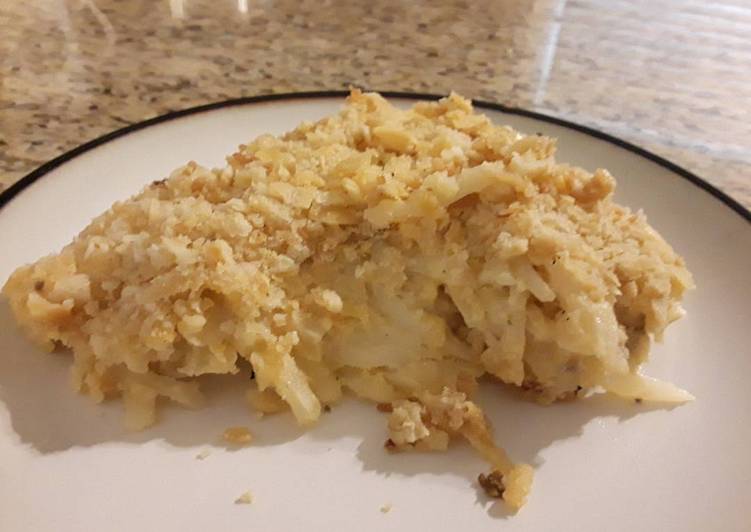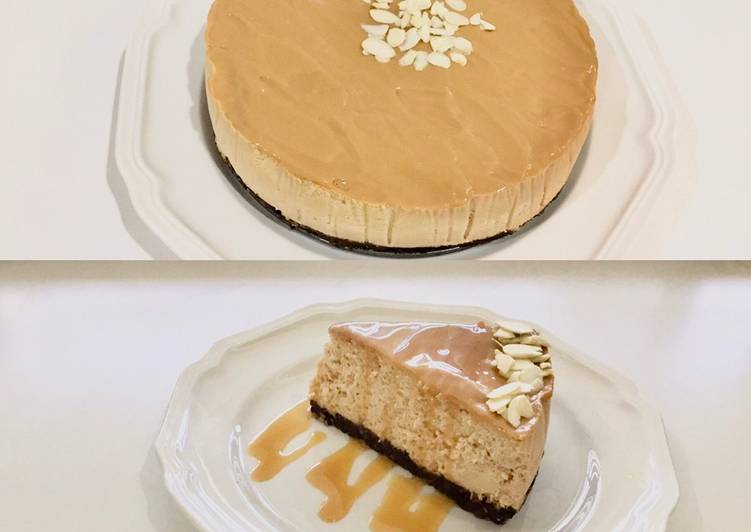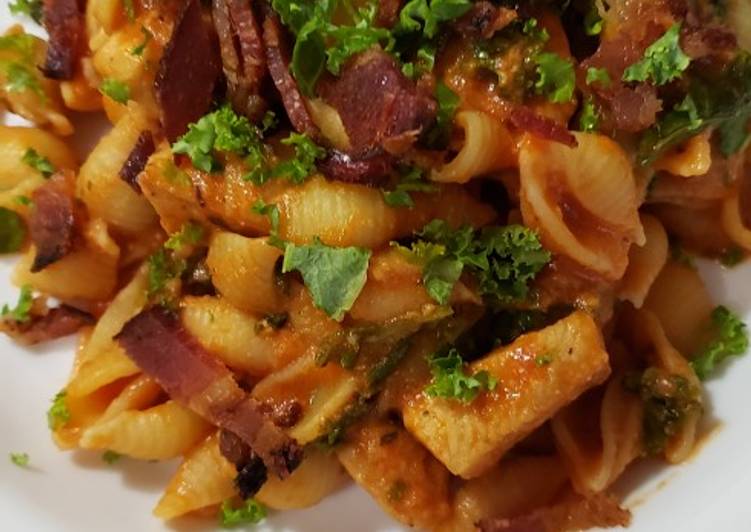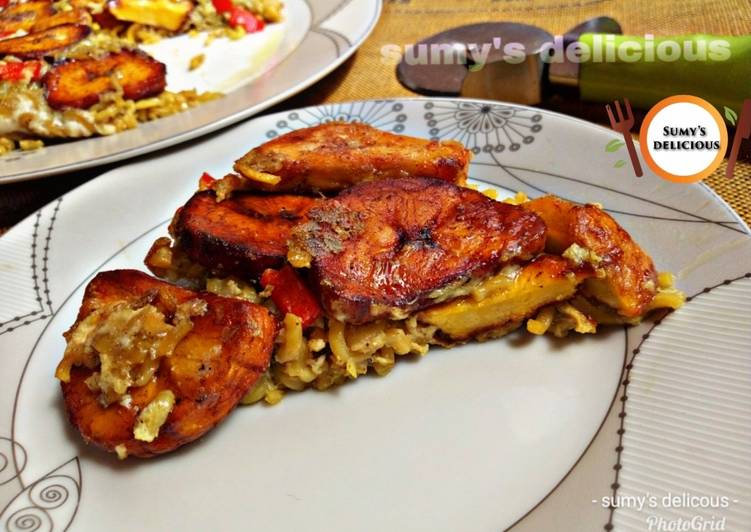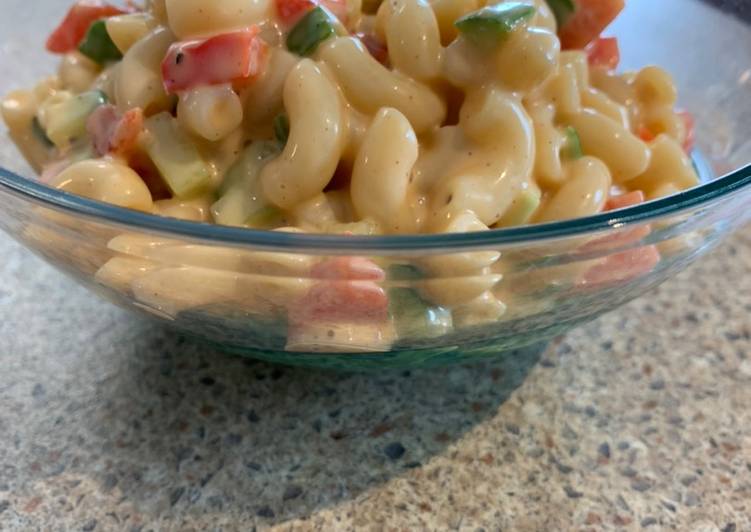Recipe of Appetizing Cassava leaves (Kisamvu) and potato & tomato sauce
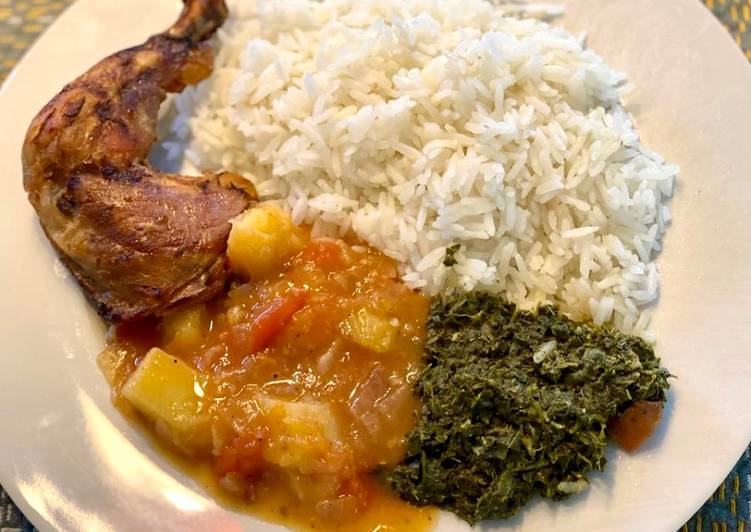
Cassava leaves (Kisamvu) and potato & tomato sauce Recipe. How to set it up? What are the ingredients? Cooking tips and more… It is one of my favourite food recipe, this time i’am gonna make it a little bit tasty.
Sweet Potatoes cooked With Meat With Coconut. Potato Fritters - Aloo Bajji Pakora: Bajia Za Viazi.
Here is the best “Cassava leaves (Kisamvu) and potato & tomato sauce” recipe we have found so far. This will be really delicious.
Ingredients of Cassava leaves (Kisamvu) and potato & tomato sauce
- You need of Cassava leaves.
- You need 2 cups of washed and shredded cassava leaves (raw).
- Prepare 1/2 tbls of garlic paste.
- It’s 1 of medium onion chopped.
- Take 1 of large tomato.
- You need 2 1/2 cups of coconut milk.
- You need 1 of chilli pepper of your choice (I used green habanero).
- You need to taste of Salt.
- You need 2 tbls of lemon juice.
- It’s 1 cup of water.
- Take of Potato sauce.
- Make ready 2 of medium russet potatoes.
- You need 1 of large tomato.
- You need 2 tbls of lemon juice.
- You need 2 tbls of tamarind paste (optional).
- Make ready 1/2 cup of chicken/vegetable broth.
- Make ready 1 tbls of garlic paste.
- Take 1 of medium onion chopped.
- Prepare to taste of Salt and pepper.
- Prepare 1 tsp of cayenne pepper.
Cassava leaves can supply a good source of vitamins and protein which can also be consumed after cooking.Cassava, Manihot esculenta, is a perennial shrub in the family Euphorbiaceae grown primarily for its storage roots which are eaten as a vegetable.Since cassava leaves are a source of protein, people in some parts of the world emphasize combining the roots and leaves of the plant to address this concern.Cassava is similar to yams and taro, and people can use it in similar ways to a potato.
Cassava leaves (Kisamvu) and potato & tomato sauce step by step
- For the cassava leaves: Sauté the garlic and onions until golden brown and add the cassava leaves. Stir to combine the ingredients together. Add water and salt and bring the pot to a boil until the water reduces halfway..
- To the boiling cassava leaves, add a cup of the coconut milk and allow to boil over medium-high heat for 3-5 minutes..
- Dice the tomatoes into 1/2 inch pieces and add to the cassava leaves. Reduce the heat to medium and allow the cassava leaves and tomatoes to simmer and cook for a further 5 minutes.
- Add the rest of the coconut milk, the whole habanero pepper and lemon juice and stir to mix well. While stirring you can gently poke the habanero pepper to release its flavours while the cassava leaves continue to cook..
- Allow the cassava leaves to simmer until the coconut milk reduces and thickens..
- Remove from heat and set aside to serve..
- For the potato sauce: dice the potatoes into 1/2 inch cubes and bring to a boil until the potatoes are halfway cooked. Drain and set aside.
- In a pot, sauté the onions and garlic until golden brown and add the diced tomatoes. Stir to combine. Then add the potatoes and stir to combine the ingredients together..
- Add the chicken/vegetable broth and bring to a boil. Now add the tamarind paste, lemon juice, salt/pepper & cayenne pepper and allow the sauce to simmer until it thickens..
- Turn heat off and serve the potato sauce along with the cassava leaves with a side of grilled chicken and coconut rice..
Cassava leaves are lower in calories.The cassava leaves has high amount of folate and Vitamin C.Due to the bland taste of cassava leaves, it should be cooked with vegetables or meat by chopping.
It is possible to use tapioca starch to make gluten-free. daun singkong (yam/cassava/sweet potato leaves).These are sold as yam leaves in my nearby Asian market.For this specific dish, kale is the best substitute if you cannot find daun singkong in your grocery store.Kisamvu is just another word for cassava leaves, but Jonathan tells me he uses spinach whenever he's in the states and the taste is a very good approximation.Jonathan gave me the very recipe they use at the orphanage he visited in Tanzania, called the Janada Batchelor Foundation for Children.
